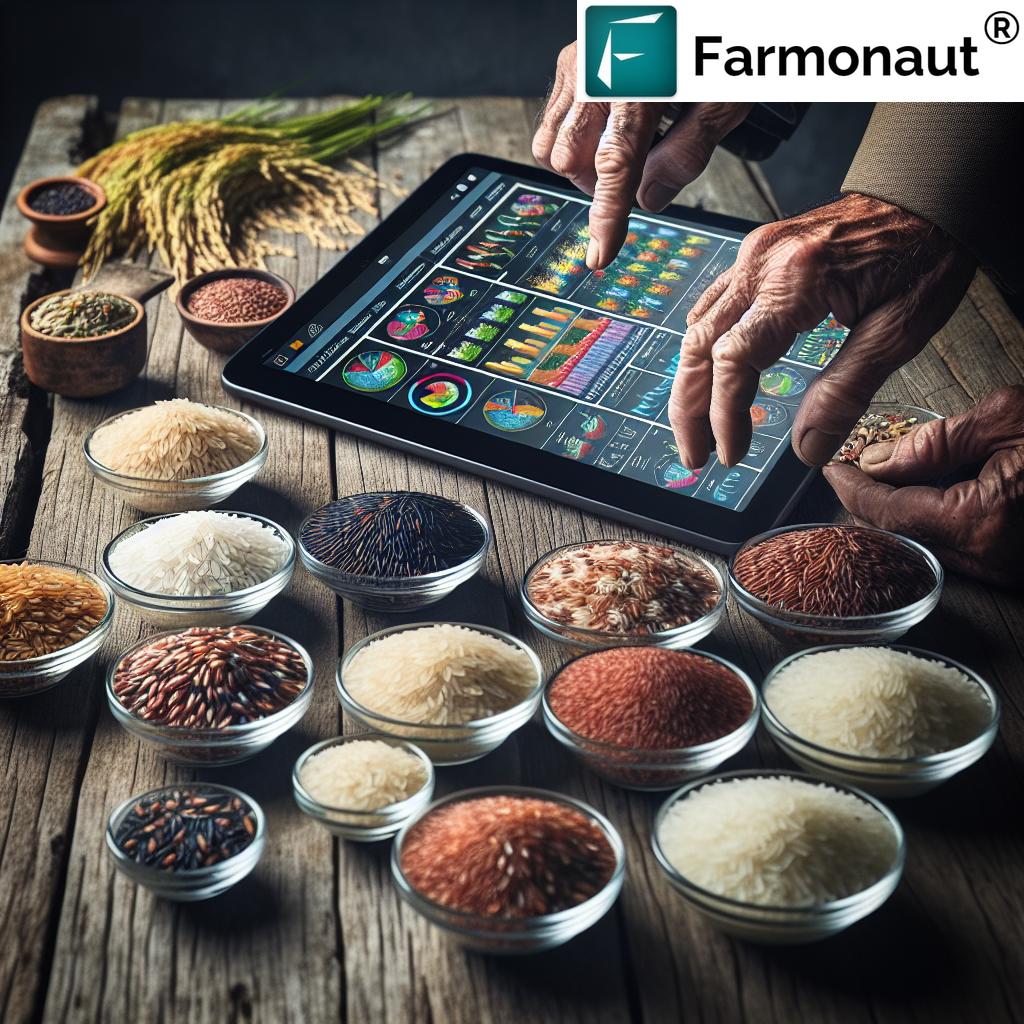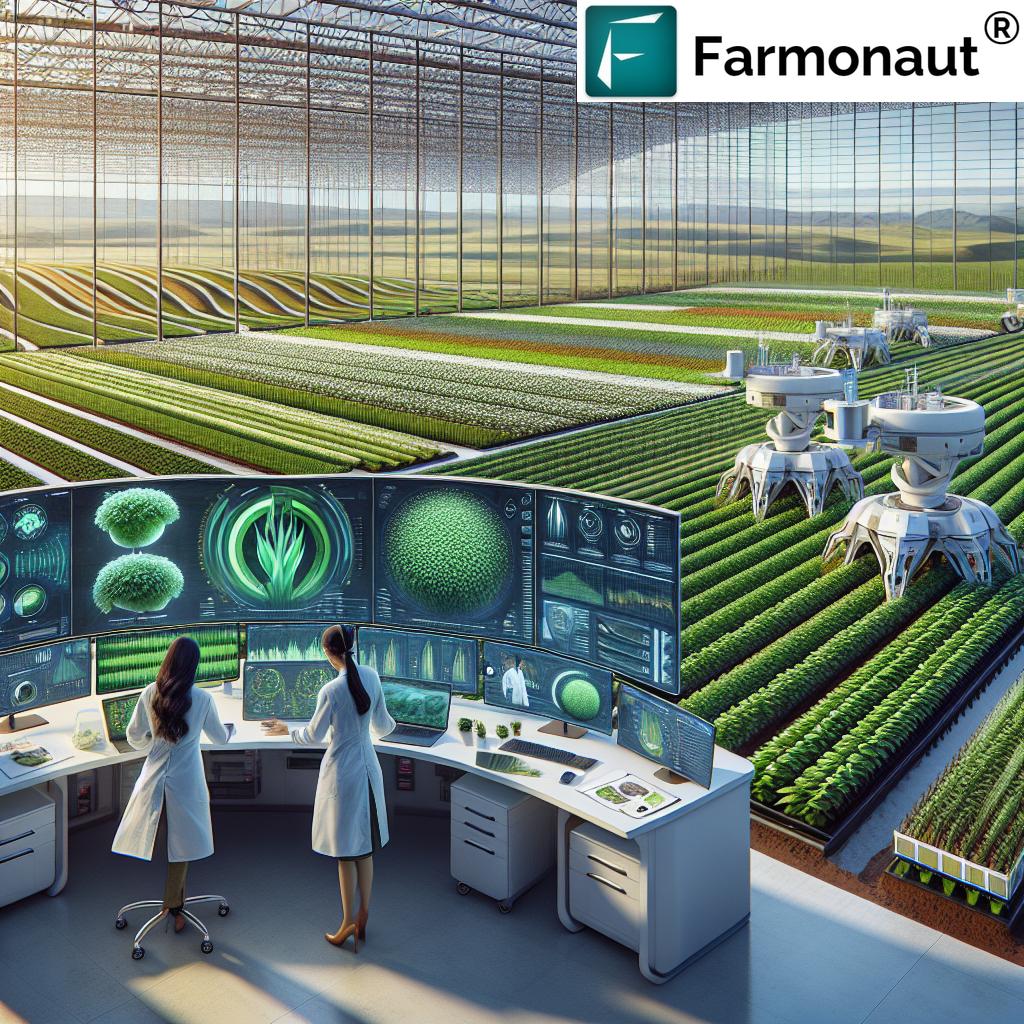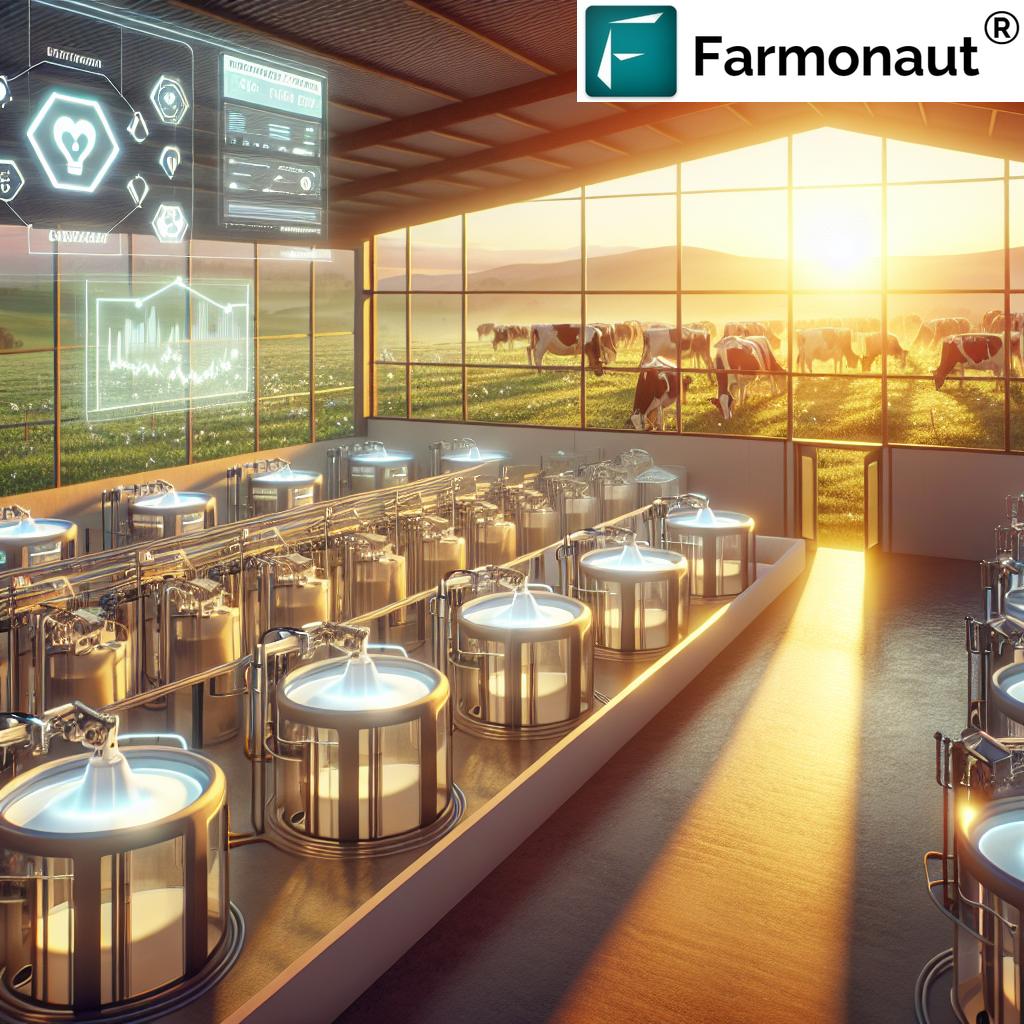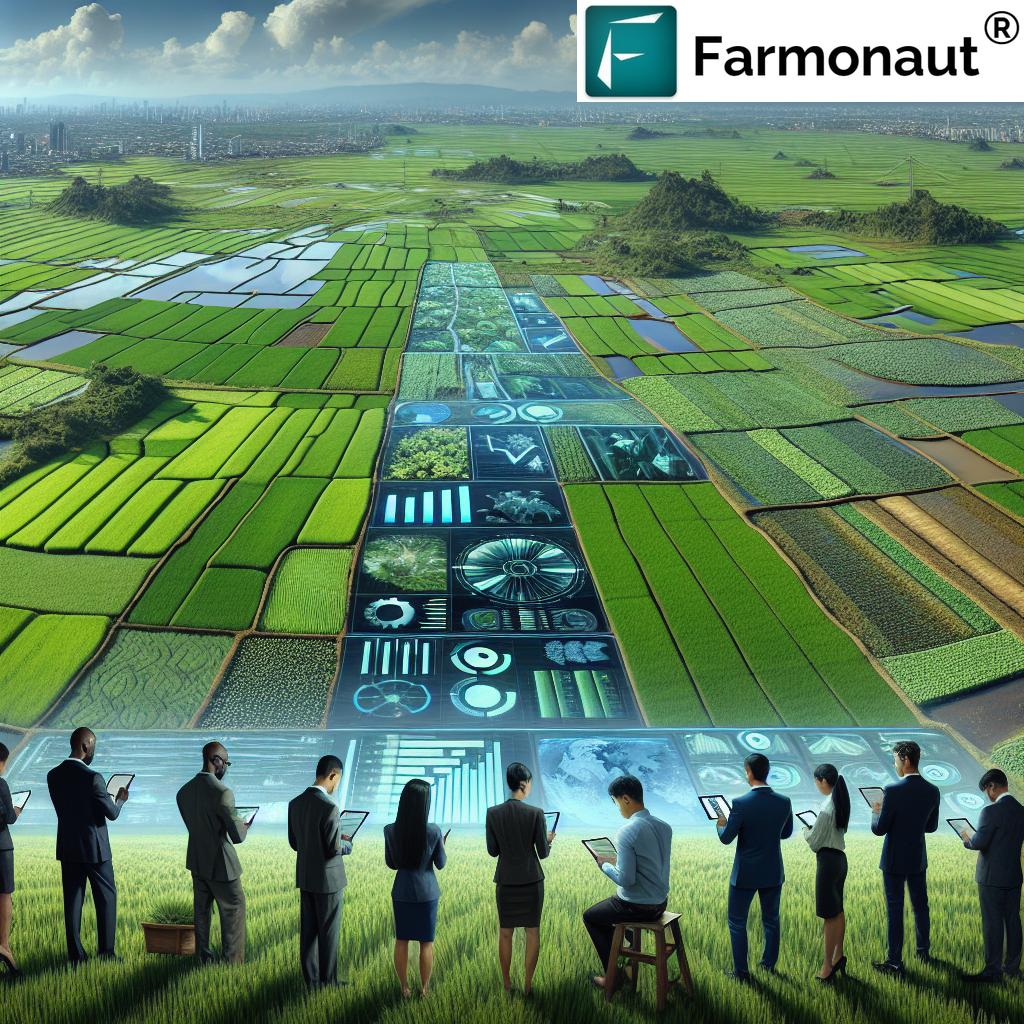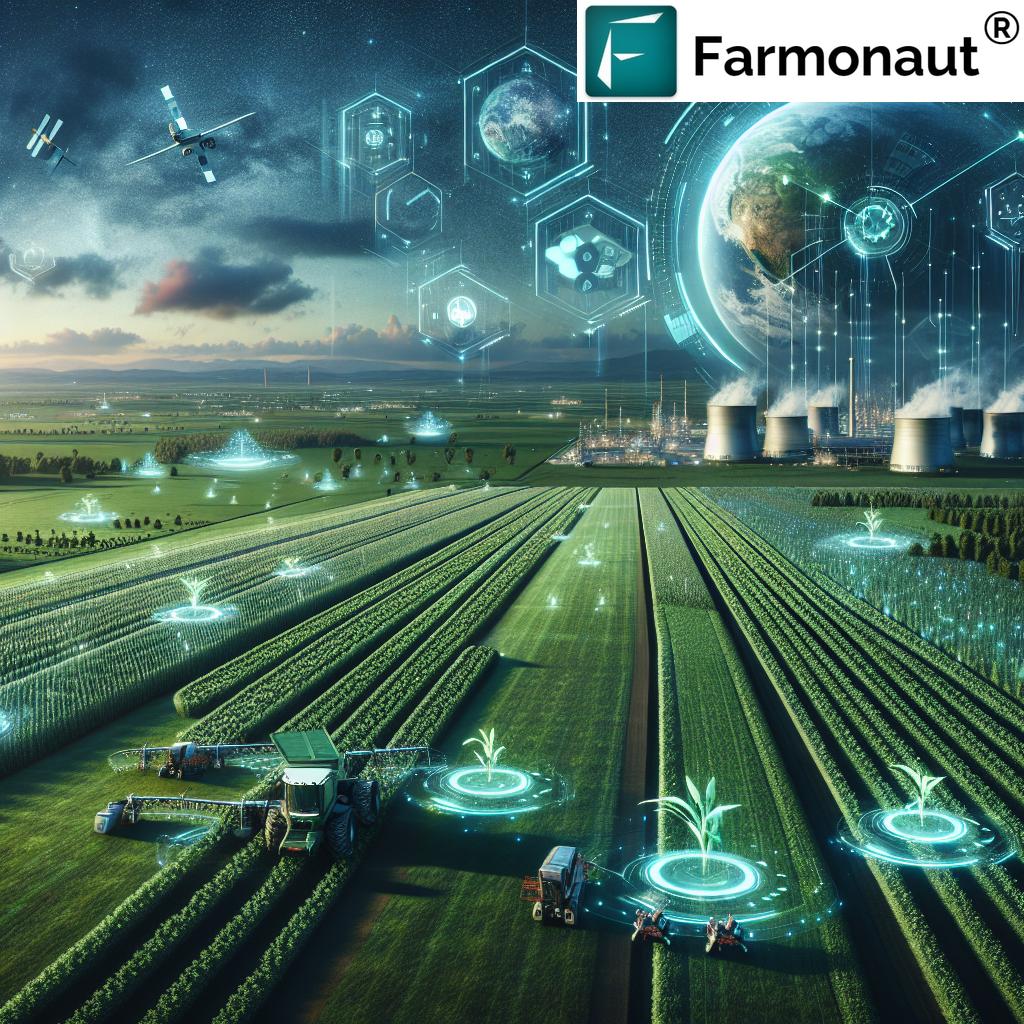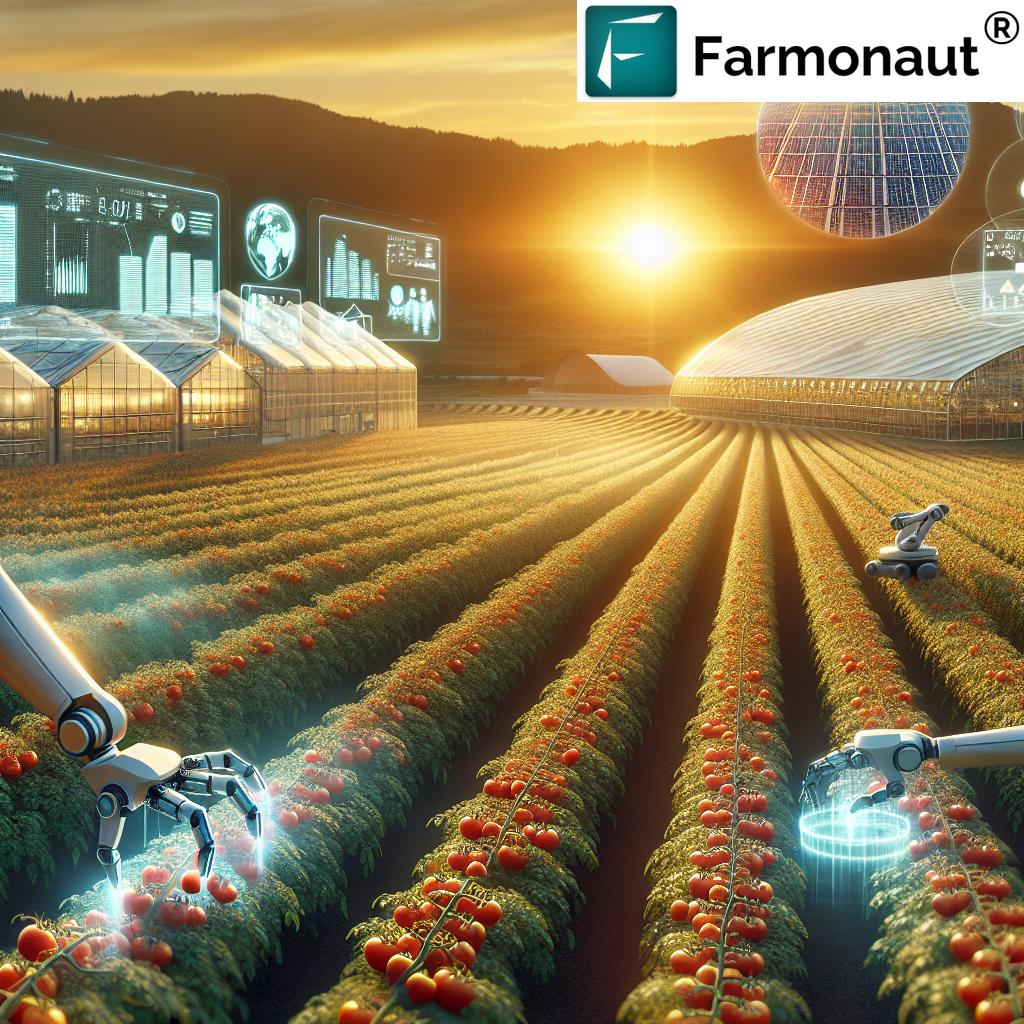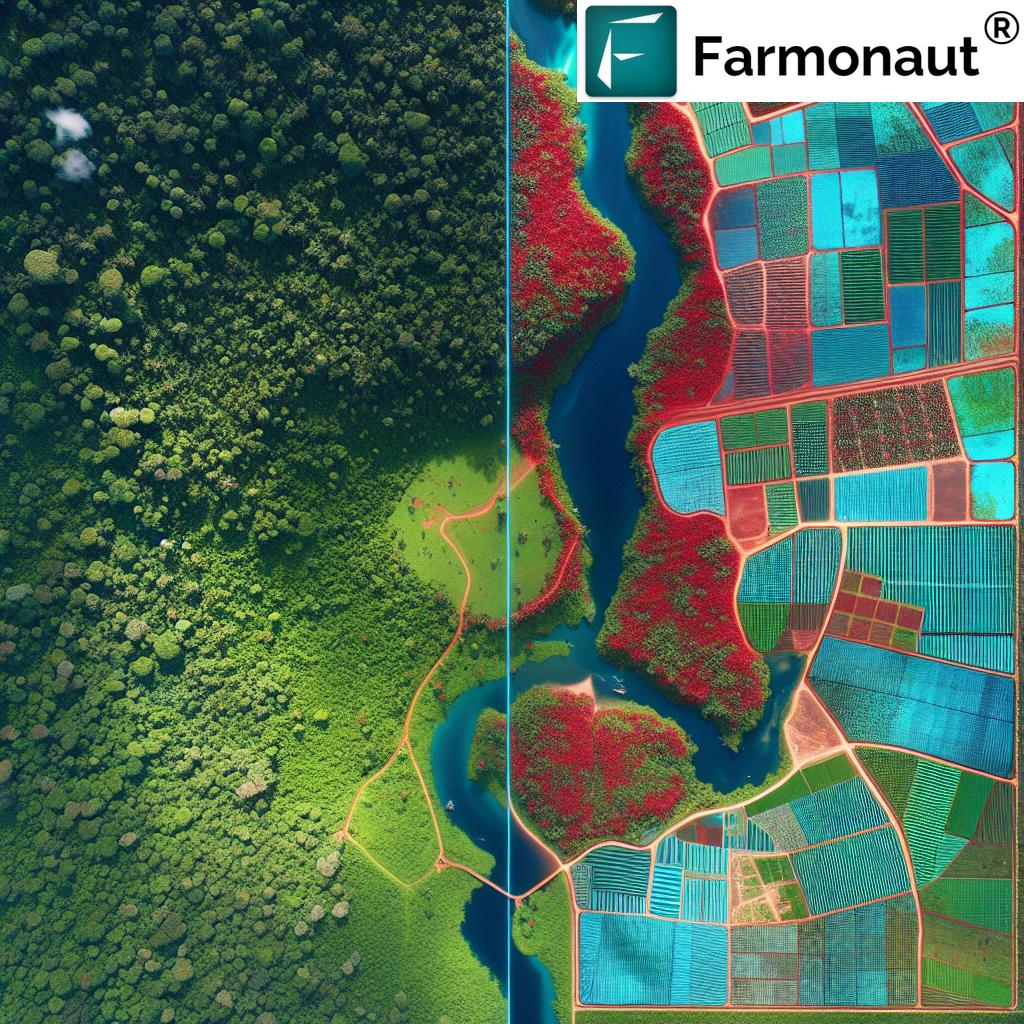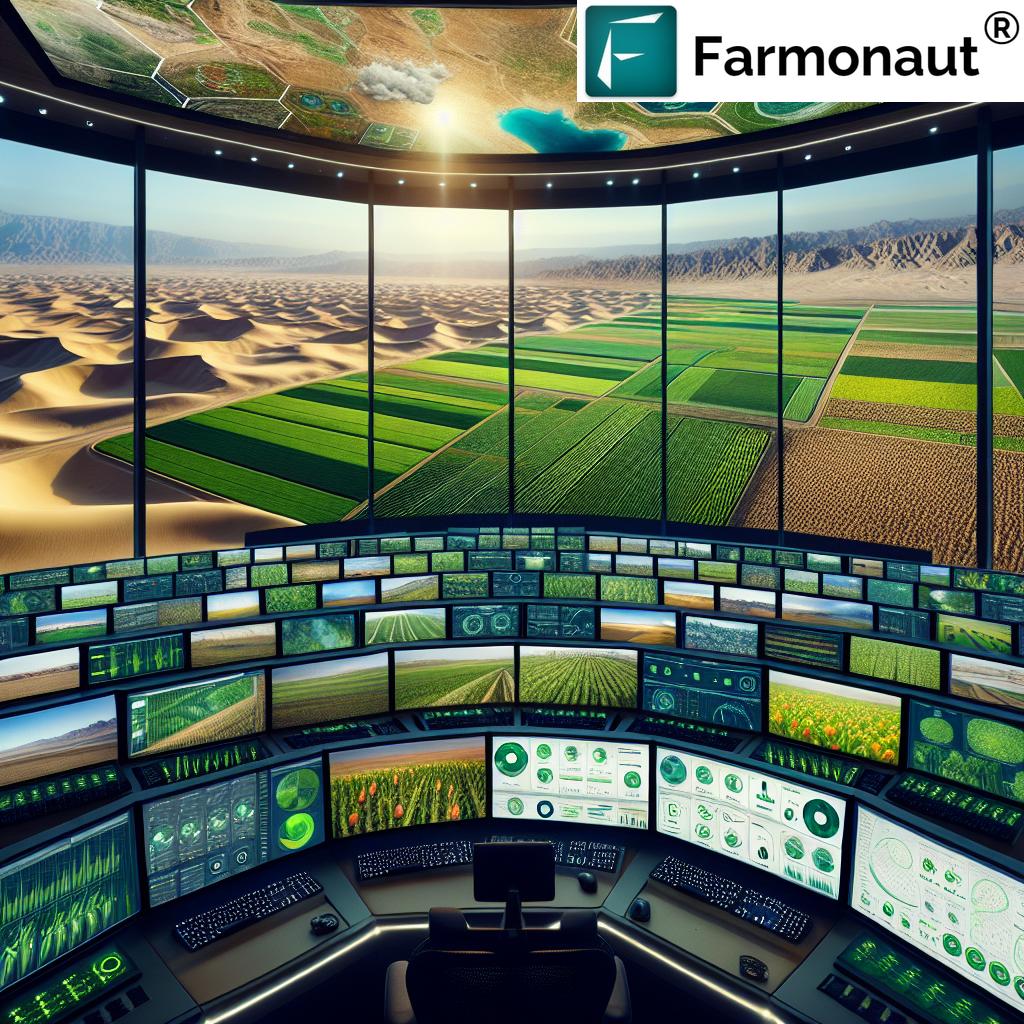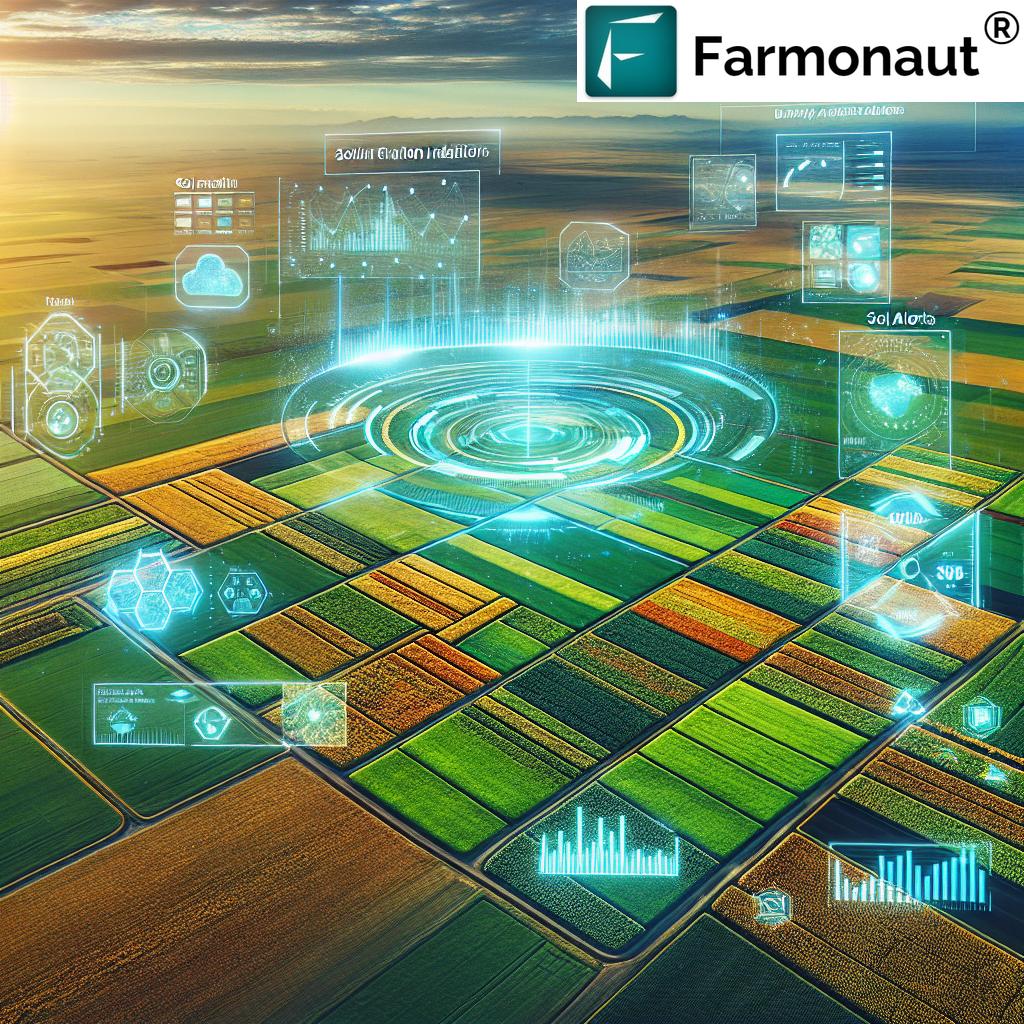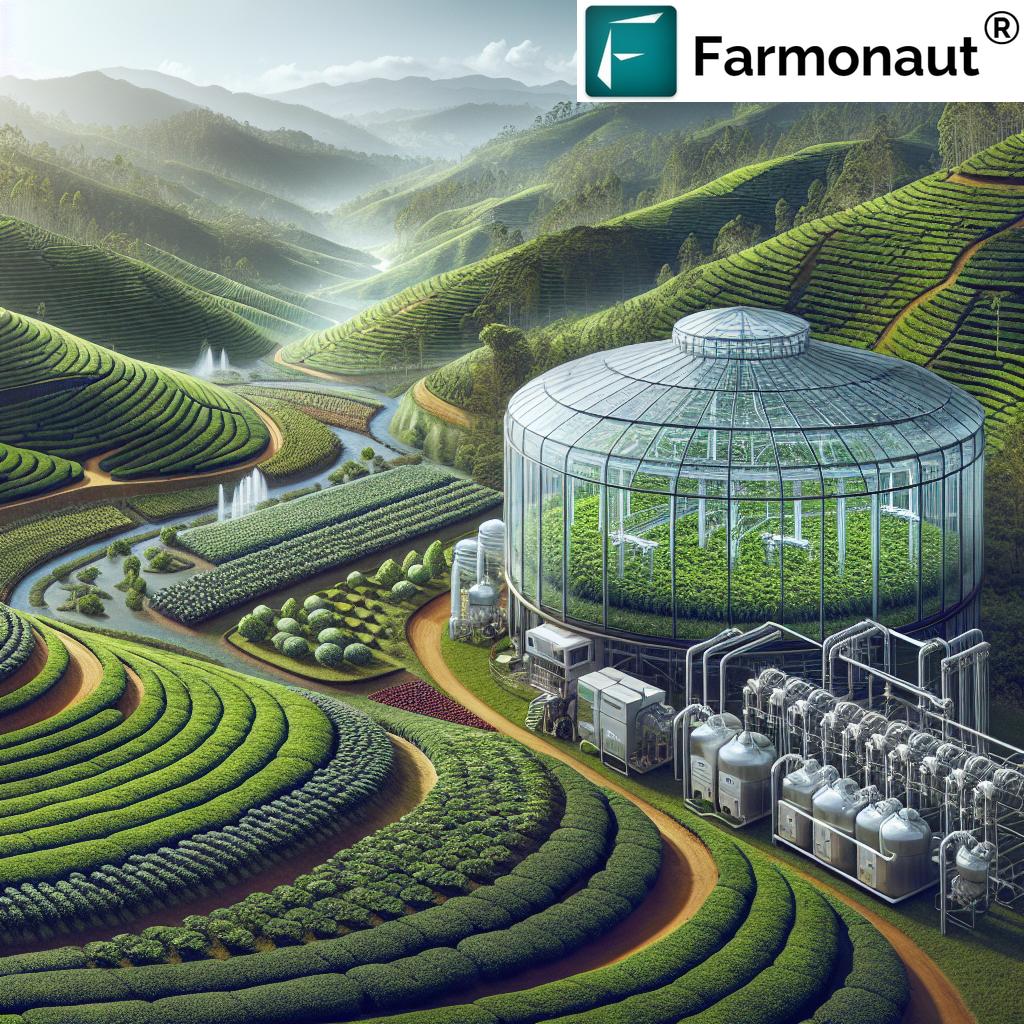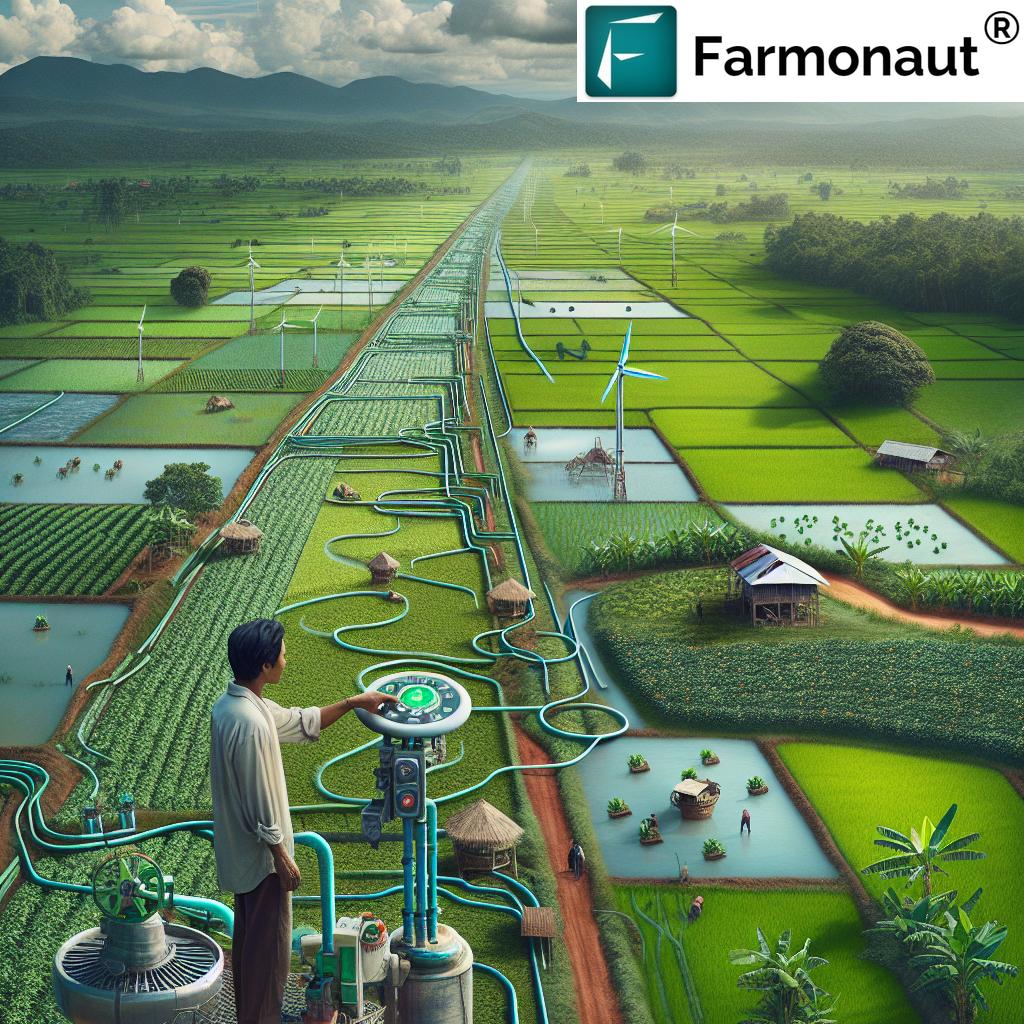Empowering Baku’s Farmers: Digital Tools and Climate-Resilient Agriculture for Sustainable Food Systems
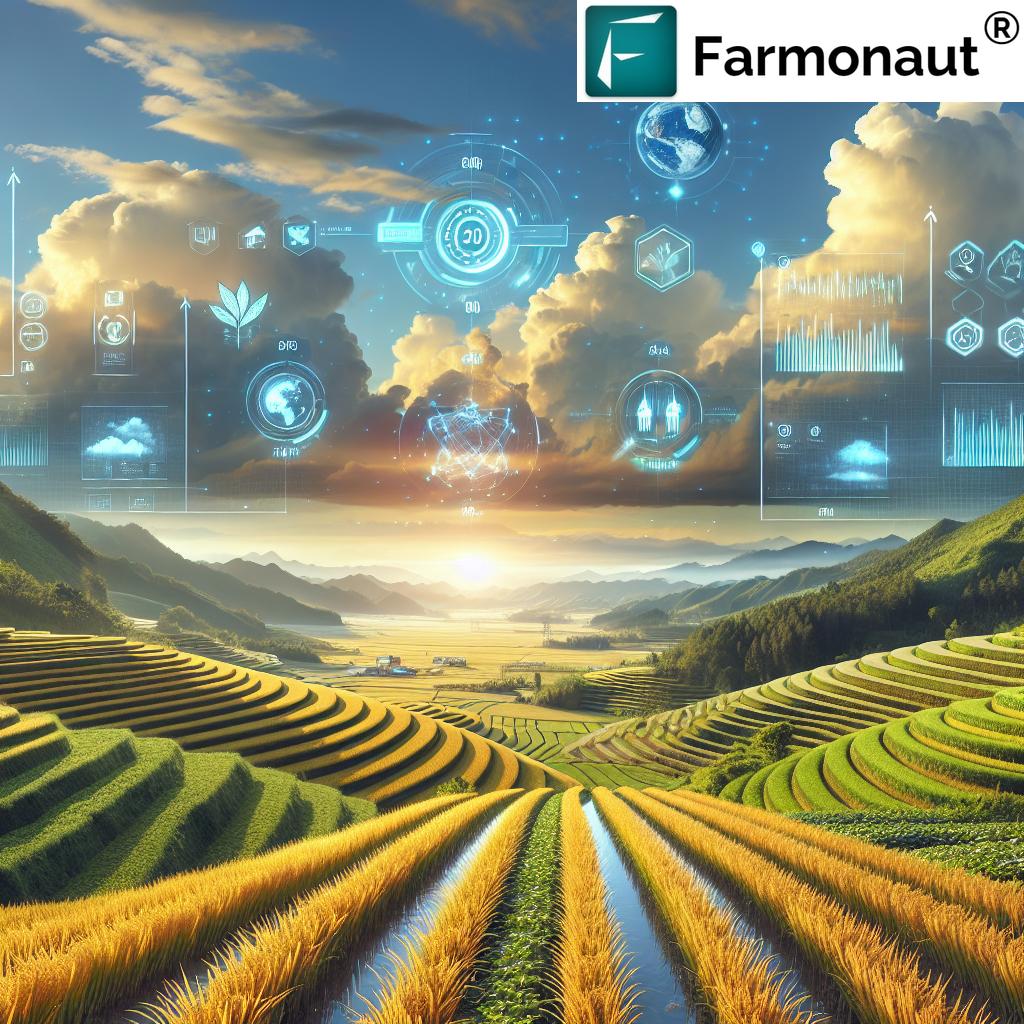
“Precision agriculture techniques can increase crop yields by up to 30% while reducing water usage by 50%.”
In the heart of Baku, where ancient traditions meet modern innovation, a revolution in agriculture is taking root. As climate change poses unprecedented challenges to global food systems, we find ourselves at the forefront of a transformative era in farming. Digital tools and climate-resilient agriculture are not just buzzwords; they’re the lifelines for sustainable food production in our rapidly changing world.
In this comprehensive exploration, we’ll delve into how these innovative approaches are reshaping the agricultural landscape in Baku and beyond. From the integration of satellite technology to the adoption of drought-resistant crops, we’ll uncover the multifaceted strategies that are empowering farmers to navigate the complexities of modern agriculture.
The Digital Revolution in Baku’s Fields
As we step into the fields of Baku, we witness a remarkable transformation. Traditional farming methods are being augmented, and in some cases replaced, by cutting-edge digital tools. This shift is not just about embracing technology for its own sake; it’s about creating a more resilient, productive, and sustainable agricultural sector.
- Precision Agriculture: At the heart of this revolution is precision agriculture. By leveraging data from satellites, drones, and ground sensors, farmers can now make decisions with pinpoint accuracy.
- Real-time Monitoring: Digital platforms provide real-time insights into crop health, soil moisture levels, and potential pest infestations.
- Resource Optimization: With these tools, farmers can optimize their use of water, fertilizers, and pesticides, reducing waste and environmental impact.
One of the pioneering companies in this field is Farmonaut, which offers advanced satellite-based farm management solutions. Through their Android, iOS, and web applications, farmers can access critical data about their crops, enabling them to make informed decisions that boost productivity while conserving resources.
Climate-Resilient Agriculture: Adapting to Change
Climate change is no longer a distant threat; it’s a present reality that farmers in Baku and around the world must contend with daily. The good news is that climate-resilient agriculture offers a robust set of strategies to adapt to these challenges.
- Drought-Resistant Crops: Scientists are developing crop varieties that can thrive with less water, a crucial adaptation in regions facing increased aridity.
- Water Management: Innovative irrigation systems, including drip irrigation and water harvesting techniques, are helping farmers make the most of limited water resources.
- Soil Health: Practices like cover cropping and no-till farming are being adopted to improve soil structure, increase organic matter, and enhance water retention.
These approaches not only help farmers weather the storms of climate change but also contribute to mitigating its effects. By sequestering carbon in the soil and reducing greenhouse gas emissions, climate-resilient agriculture plays a dual role in the fight against global warming.
The Power of Agricultural Data Analytics
In the age of big data, information is power, and nowhere is this more evident than in agriculture. Agricultural data analytics is transforming how farmers understand their land, crops, and the environmental factors that influence them.
- Predictive Modeling: By analyzing historical data and current conditions, farmers can predict crop yields, potential disease outbreaks, and optimal planting times.
- Personalized Recommendations: AI-driven platforms can provide tailored advice on crop selection, fertilizer application, and pest management strategies.
- Market Intelligence: Data analytics also helps farmers make informed decisions about when to sell their crops, maximizing their economic returns.
Farmonaut’s platform exemplifies the power of agricultural data analytics. Their AI-based advisory system, Jeevn AI, delivers personalized insights and recommendations to farmers, helping them optimize their operations and increase productivity.
Sustainable Practices for a Greener Future
Sustainability is no longer optional in agriculture; it’s imperative. As we strive to feed a growing global population, we must do so in a way that preserves our planet’s resources for future generations.
- Low-Emission Farming: Innovative practices are helping reduce agriculture’s carbon footprint, from methane-reducing feed additives for livestock to precision fertilizer application.
- Biodiversity Conservation: Maintaining diverse ecosystems within and around farms helps support natural pest control and pollination services.
- Circular Agriculture: By recycling organic waste and implementing closed-loop systems, farms can minimize waste and maximize resource efficiency.
These sustainable practices not only benefit the environment but also often lead to improved soil health, better crop yields, and increased farm profitability in the long run.
“Climate-resilient farming practices can sequester up to 1.2 billion tons of carbon annually, equivalent to 3% of global emissions.”
Bridging the Knowledge Gap: Digital Tools for Rural Farmers
One of the most significant challenges in implementing climate-resilient and sustainable farming practices is the knowledge gap between agricultural experts and rural farmers. Digital tools are proving instrumental in bridging this divide.
- Mobile Apps: Smartphone applications provide farmers with access to crucial information on weather patterns, market prices, and best practices in their local language.
- SMS Services: For areas with limited internet connectivity, SMS-based services deliver timely alerts and advice to farmers.
- Online Learning Platforms: E-learning modules allow farmers to upskill and learn about new agricultural techniques at their own pace.
Farmonaut’s commitment to accessibility is evident in their multi-platform approach, offering their services through web, Android, and iOS applications, ensuring that farmers can access vital information regardless of their preferred device.
Small-Scale Irrigation: Big Impact on Food Security
In regions like Baku, where water scarcity is a growing concern, small-scale irrigation systems are making a significant difference in agricultural productivity and food security.
- Micro-Irrigation: Technologies like drip irrigation and micro-sprinklers deliver water directly to plant roots, minimizing evaporation and runoff.
- Solar-Powered Pumps: Renewable energy solutions are making irrigation more accessible and sustainable, especially in off-grid areas.
- Smart Irrigation Controllers: These devices use weather data and soil moisture sensors to automatically adjust watering schedules, ensuring optimal water use.
By implementing these systems, small-scale farmers can increase their crop yields, diversify their produce, and build resilience against drought conditions.
Carbon Sequestration: Agriculture as a Climate Solution
While agriculture is often viewed as a contributor to climate change, it also holds immense potential as a solution. Carbon sequestration in agriculture is gaining recognition as a powerful tool in the fight against global warming.
- Cover Cropping: Planting cover crops during off-seasons helps keep carbon locked in the soil and prevents erosion.
- Agroforestry: Integrating trees into agricultural landscapes increases carbon storage both above and below ground.
- Reduced Tillage: Minimizing soil disturbance helps preserve soil structure and retain organic carbon.
These practices not only sequester carbon but also improve soil health, water retention, and overall farm productivity. Farmonaut’s platform includes features for carbon footprint tracking, helping farmers and agribusinesses monitor and reduce their environmental impact.
For developers interested in integrating agricultural data into their own systems, Farmonaut offers API access. Learn more about their API and explore the API Developer Docs.
The Role of Blockchain in Sustainable Agriculture
Blockchain technology is emerging as a powerful tool for enhancing transparency and traceability in agricultural supply chains. This has significant implications for sustainable and climate-resilient agriculture.
- Supply Chain Transparency: Blockchain allows for the tracking of products from farm to table, ensuring food safety and authenticity.
- Fair Trade Verification: The technology can help verify fair trade practices, ensuring farmers receive proper compensation for sustainable practices.
- Carbon Credit Tracking: Blockchain can facilitate the accurate tracking and trading of carbon credits generated through agricultural practices.
Farmonaut’s integration of blockchain technology for product traceability demonstrates the potential of this technology in creating more transparent and sustainable food systems.
Empowering Marginalized Farmers Through Technology
As we embrace digital tools and climate-resilient practices, it’s crucial to ensure that these innovations reach the most vulnerable farming communities. In Baku and beyond, efforts are being made to make these technologies accessible to marginalized farmers.
- Community Tech Hubs: Establishing local centers where farmers can access digital tools and receive training.
- Micro-Financing for Tech Adoption: Programs that provide small loans to help farmers invest in digital tools and sustainable practices.
- Collaborative Farming Platforms: Digital platforms that allow small-scale farmers to pool resources and share knowledge.
By democratizing access to these technologies, we can create a more equitable and resilient agricultural sector that benefits all farmers, regardless of their scale of operation.
The Future of Farming: Balancing Productivity and Sustainability
As we look to the future of agriculture in Baku and around the world, the key lies in striking a balance between increasing productivity and ensuring environmental sustainability. This balance is achievable through the thoughtful integration of digital tools, climate-resilient practices, and sustainable farming methods.
- Precision Agriculture 2.0: The next generation of precision agriculture will leverage AI and machine learning to provide even more accurate and personalized farming recommendations.
- Vertical Farming: Urban agriculture solutions like vertical farming will play an increasing role in food production, especially in cities like Baku.
- Regenerative Agriculture: Practices that not only sustain but actively improve soil health and ecosystem biodiversity will gain prominence.
Companies like Farmonaut are at the forefront of this agricultural revolution, providing the tools and insights needed to navigate this complex landscape. Their commitment to making precision agriculture affordable and accessible aligns perfectly with the goal of creating a more sustainable and equitable food future.
Comparative Analysis: Traditional vs. Digital Agriculture
To better understand the transformative power of digital tools and climate-resilient practices, let’s compare traditional farming methods with their innovative counterparts:
| Agricultural Aspect | Traditional Method | Digital/Innovative Approach |
|---|---|---|
| Crop Selection | Local knowledge | AI-powered crop recommendations |
| Irrigation | Fixed schedules | Sensor-based precision irrigation |
| Pest Management | Calendar-based spraying | Drone-based targeted application |
| Soil Health | Annual soil testing | Real-time soil nutrient monitoring |
| Weather Forecasting | Local observations | Satellite-based climate predictions |
| Yield Estimation | Visual assessment | Remote sensing and AI analysis |
This comparison illustrates the significant advancements that digital and innovative approaches bring to agriculture, enhancing precision, efficiency, and sustainability across various aspects of farming.
Conclusion: A Sustainable Path Forward
As we conclude our exploration of digital tools and climate-resilient agriculture in Baku and beyond, it’s clear that we stand at a pivotal moment in agricultural history. The challenges posed by climate change are formidable, but the solutions at our disposal are equally powerful.
By embracing precision agriculture, leveraging agricultural data analytics, and implementing sustainable practices, we can create food systems that are not only more productive but also more resilient and environmentally friendly. The digital revolution in agriculture, exemplified by platforms like Farmonaut, is providing farmers with the tools they need to navigate this complex landscape.
As we move forward, it’s crucial that we continue to innovate, collaborate, and ensure that these technological advancements reach all farmers, especially those in marginalized communities. Only then can we truly create a sustainable and equitable food future for Baku and the world.
The path ahead is challenging, but with the right tools, knowledge, and commitment to sustainability, we can cultivate a future where agriculture thrives in harmony with our planet.
FAQ Section
- Q: What is climate-resilient agriculture?
A: Climate-resilient agriculture refers to farming practices that are designed to adapt to and withstand the impacts of climate change, such as extreme weather events, changing rainfall patterns, and rising temperatures. It includes strategies like using drought-resistant crops, implementing efficient irrigation systems, and adopting soil conservation techniques. - Q: How do digital tools contribute to sustainable farming?
A: Digital tools contribute to sustainable farming by providing precise data and insights that allow farmers to optimize their use of resources. This includes satellite-based crop monitoring, AI-driven advisory systems, and precision application of inputs like water and fertilizers, all of which help reduce waste and environmental impact while improving crop yields. - Q: What are some examples of low-emission farming practices?
A: Low-emission farming practices include methods that reduce greenhouse gas emissions from agricultural activities. Examples include no-till farming to minimize soil disturbance, using cover crops to sequester carbon, implementing methane-reducing feed additives for livestock, and adopting renewable energy sources for farm operations. - Q: How can small-scale farmers benefit from precision agriculture?
A: Small-scale farmers can benefit from precision agriculture through affordable and accessible technologies like smartphone apps that provide weather forecasts, pest alerts, and market prices. They can also use low-cost sensors for soil moisture monitoring and access satellite data for crop health assessment, all of which can help improve decision-making and resource efficiency. - Q: What role does biodiversity play in climate-resilient agriculture?
A: Biodiversity is crucial for climate-resilient agriculture as it enhances ecosystem resilience. Diverse crop varieties and farming systems are better able to withstand pests, diseases, and extreme weather events. Additionally, biodiversity supports natural pest control and pollination services, reducing the need for chemical inputs and improving overall farm sustainability.




